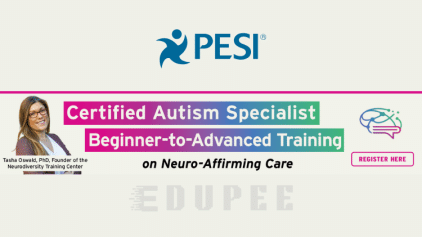How to Work with Feelings of Defectiveness by Nicabm – Download Instantly
Content Proof:
How to Work with a Client’s Core Feeling of Defectiveness
For some clients, there’s a core belief that underlies many of the clinical issues they bring to therapy – a sense of defectiveness.
When a client feels defective, they’re often plagued by shame and self-doubt.
It can leave them feeling like they’re unworthy of change (which is why we often see self-sabotage and regression).
To add to the problem, these entrenched beliefs usually can’t be touched by reason or logic alone . . .
. . . and for many clients, each failed attempt to shift feelings of defectiveness often only amplifies their intensity.
So how can we overcome these therapeutic obstacles and help clients break free of a painful core belief that they’re fundamentally flawed?
We brought this question to 19 of the top minds in the field. Presenting . . .
How to Work with Feelings of Defectiveness: A Comprehensive Review
In today’s fast-paced and highly competitive world, individuals often grapple with feelings of inadequacy and defectiveness. These emotions can arise from various sources, including personal experiences, societal expectations, and interpersonal relationships. The resources provided by the National Institute for the Clinical Application of Behavioral Medicine (NICABM) present an effective framework for tackling these pervasive feelings and fostering greater self-acceptance. This review aims to explore the insights offered by NICABM on how to conquer feelings of defectiveness, equipping therapists and individuals alike to understand and resolve these challenges.
Understanding Feelings of Defectiveness
Feelings of defectiveness often arise from complex psychological and emotional factors, including trauma, attachment issues, and entrenched cognitive patterns. Trauma assessment is essential for uncovering the root causes of these feelings, as understanding whether a person’s sense of defectiveness stems from past experiences helps shape the therapeutic approach.
Trauma-related defectiveness can appear as persistent beliefs of unworthiness or inferiority. Therapists can use targeted assessments to gauge how deeply trauma affects self-perception. Once identified, interventions can redirect focus from negative self-beliefs toward self-acceptance and personal growth.
Attachment disturbances also play a significant role in fostering feelings of inadequacy. Early relational experiences influence how individuals connect with others, often creating patterns of believing they are undeserving of love, success, or respect. By recognizing these attachment patterns, therapists and clients can work to reframe unhealthy narratives, promote healthier relationships, and cultivate a stronger, more positive self-image.
Addressing both trauma and attachment-related issues provides a comprehensive pathway for understanding and healing feelings of defectiveness, paving the way toward resilience and emotional well-being.
Techniques for Overcoming Defective Feelings
NICABM emphasizes several techniques that therapists can implement to assist clients in overcoming feelings of defectiveness. One critical strategy is identifying and shifting cognitive patterns the thought processes that reinforce feelings of inadequacy. Cognitive behavioral strategies can be employed to help clients recognize negative thought patterns, challenge their validity, and replace them with more constructive beliefs.
For instance, a therapist might guide a client to monitor their thoughts related to self-worth, pinpointing those that are particularly damaging. Over time, this awareness can facilitate the development of healthier cognitive habits. As clients retrain their minds to focus on their strengths rather than their shortcomings, a significant shift in self-perception can occur.
Self-compassion practices are another essential technique shared by NICABM. These practices encourage individuals to treat themselves with the same kindness and understanding they would offer to a friend. Incorporating self-compassion exercises into therapy can assist clients in navigating their feelings of defectiveness by fostering resilience and emotional well-being. Research has shown that self-compassion is linked to lower levels of anxiety and depression, making it a vital component of mental health treatment.
Summary of Key Techniques
| Technique | Description |
| Trauma Assessment | Recognizing trauma-based feelings and their roots in client history. |
| Attachment Disturbances | Addressing emotions stemming from different attachment styles. |
| Cognitive Pattern Shift | Challenging negative thought processes that reinforce feelings of inadequacy. |
| Self-Compassion Practices | Developing self-kindness and resilience through self-compassion exercises. |
| Therapeutic Interventions | Strategies to challenge detrimental narratives and improve self-worth. |
The integration of these techniques into therapeutic practice provides a well-rounded approach aimed at reducing feelings of defectiveness and fostering a healthier self-image.
Understanding Shame and Its Influence on Feelings of Defectiveness
Shame often intensifies feelings of defectiveness, making negative self-perception even more entrenched. Dr. Ron Siegel, featured in NICABM resources, emphasizes strategies to address chronic shame, highlighting its critical role in creating effective therapeutic interventions.
A key approach involves fostering social connection. Developing meaningful relationships and supportive networks can help individuals feel less isolated in their struggles with shame and defectiveness. Recognizing that others share similar experiences often provides comfort and a sense of belonging, which is essential for emotional healing.
Exploring the origins of shame is another important step. Therapists are encouraged to examine a client’s trauma history, uncovering the root causes of these intense emotions. Reflective conversations enable clients to articulate their experiences and identify recurring patterns that may have previously gone unnoticed, offering clarity and a path toward recovery.
Practices of self-compassion and gratitude are also highly effective in reshaping self-perception. Encouraging clients to acknowledge their strengths and express gratitude can help redirect focus from feelings of inadequacy to recognition of their value and contributions. Research indicates that regular engagement in gratitude exercises can significantly improve mental well-being and foster a more positive, resilient mindset.
By addressing shame alongside defectiveness, therapists can guide clients toward deeper self-understanding, stronger social connections, and lasting emotional growth.
Key Insights from Ron Siegel
- Social Connection: Vital for healing feelings of defectiveness and shame.
- Origins of Feelings: Important to explore trauma history in therapy for deeper understanding.
- Self-Compassion and Gratitude: Powerful tools for reframing negative self-perception and enhancing emotional health.
Additional Resources and Courses on Trauma
NICABM also offers a myriad of additional trauma courses designed to address underlying issues related to feelings of defectiveness and shame. These programs provide therapists with extensive knowledge and practical tools necessary for helping clients navigate their emotions efficiently.
For instance, the courses delve into frameworks that enhance the understanding of trauma and its implications, equipping therapists to better support their clients. Clients can take advantage of comprehensive resources tailored to improve their coping mechanisms and emotional resilience.
Overview of Additional Trauma Courses
| Course Title | Focus Area |
| Trauma and Its Influence | Understanding the impact of trauma on mental health and self-perception. |
| Attachment Theory | Exploring how attachment styles influence emotional responses and self-worth. |
| Strategies for Healing | Practical techniques for therapists to use in supporting clients through their emotional challenges. |
Together, these resources provide therapists with a comprehensive approach to help clients deal with complex feelings of inadequacy. The knowledge gained from the trauma courses can significantly expand a therapist’s ability to assist clients in understanding and overcoming their feelings of defectiveness.
Conclusion
NICABM offers practical, evidence-based resources to help therapists and clients address feelings of defectiveness. Through trauma assessment, cognitive reframing, and social connection strategies, individuals can shift negative patterns and build resilience. Emphasizing self-compassion and gratitude, these approaches help counter shame and foster a healthier self-image. NICABM’s courses provide actionable tools for emotional healing, empowering clients to cultivate confidence, self-worth, and a more fulfilling life.










Reviews
There are no reviews yet.